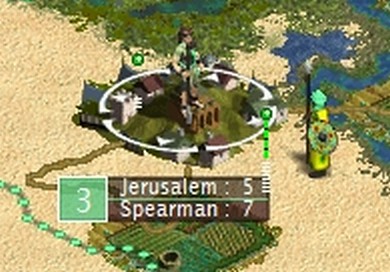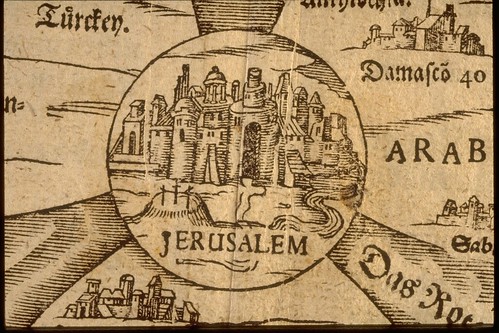Golden Fleece
Chieftain
"The Will of the Caliph", from the chronicles of Al-ulī.

Abbasid manuscript
About:
This is a story about the famed rise to power of the Abbasid Caliphate on embryodead's and Yoda's amazing MEM II-Mod. I've been inspired by the great stories on this board, but a complete tale in MEM seems to be missing as yet. This is an attempt to fill the gap. The story will be told in English prose style, as the poetic and flowery Arabic of Al-ulī's original manuscript would be too hard to stomach.
 I will try to follow the gameplay as closely as possible in the narration, but will take the liberty to apply artistic license if it adds to the flow.
I will try to follow the gameplay as closely as possible in the narration, but will take the liberty to apply artistic license if it adds to the flow. Just a few facts:
Difficulty is Duke (Monarch), Large MEM Europe Map, all 31 MEM civs. Domination, Expedition and Conquest vistory conditions are on, Cultural is off (this is a tale of conquest!).
The goal is to recreate the historical caliphate, which at the height of its power stretched from Persia to modern-day Tunisia, encompassing the entire Middle East, south-east Turkey and most of Northern Africa. As Persia is not part of the MEM-map I'll haver to forgo the Eastern-most (and, arguably, most influential) part of the empire. Can't have it all.
 As compensation I will also reclaim the lands of the historical Ummayads, meaning the rest of Northern Africa and most of the Iberian peninsula. Before this hasn't happened, I may not expand anywhere else; only when the historical caliphate has been re-established can I consider other territory. Let's see what happens.
As compensation I will also reclaim the lands of the historical Ummayads, meaning the rest of Northern Africa and most of the Iberian peninsula. Before this hasn't happened, I may not expand anywhere else; only when the historical caliphate has been re-established can I consider other territory. Let's see what happens.  To add to the historical feel, I will try to dot this thread with historical images and idioms, which I hope will enhance viewing pleasure. I will also liberally mix actual history and fantasy (due to game-play), the first example right off the bat by moving the foundation of the capital 60 years before it's real time - that's because the mod starts before that.
To add to the historical feel, I will try to dot this thread with historical images and idioms, which I hope will enhance viewing pleasure. I will also liberally mix actual history and fantasy (due to game-play), the first example right off the bat by moving the foundation of the capital 60 years before it's real time - that's because the mod starts before that. And of course, I'll include lots of screenies!
And of course, I'll include lots of screenies!
Oh, and this will be my first attempt at completing a Monarch game, and also the first time adding a kind of variant, so feel free to comment on the actual game-play. Al-ulī's chronicles are sometimes sketchy and difficult to decipher, there may be several interpretations to the text.

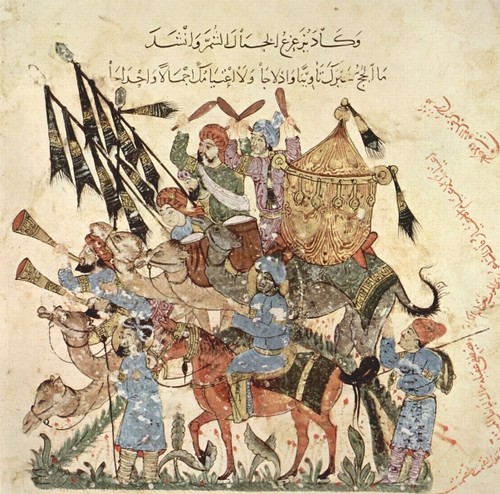
Painting by Yahyâ ibn Mahmûd al-Wâsitî, 13 c.
Off we go:
700 AD
Kneeling down in the soft earth, al-Mansur gazed with jet-coloured eyes at the scene presenting itself before him. The water flowed brown and rich past the fertile land, a gentle wind blew over a small grove of date trees and crickets were chirping in the grass, while the rising sun was already heating up the air. The eyes caught a small flock of purple herons rising from the far shore of the legendary river. He wondered whether that was a good omen. Hearing steps approaching, he nevertheless remained in this position, the hard features of his face inscrutable.
- "My lord, it is time."
- "Yes."
He rose slowly and turned to his loyal follower. The months, indeed years, of hardship and strife had been carved into the other man's face. al-Muhi had been a close friend to his brother, who had died during their journey just a few months before and whose title he had inherited. He was accompanied by another. al-Mansur found himself looking into a mirror image of himself, albeit with no grey hair and far fewer lines around those same black eyes. The younger man spoke.
- "Father - let us pray."
The three men turned south to Makkah, to praise God for bringing them to this blessed and ancient place, and allowing them and their families to live. Performing the sujud, the new Caliph thanked Allah for his aid in their struggle against the immoral Ummayad and saying duas, he added a promise that in the name of his ancestor, uncle of the prophet Muhammad, he would do everything in his power to establish and defend with a sharp blade a realm that will spread the glory and knowledge of Islam, as the prophet had taught 80 years before.
Abu Ja'far Abdallah ibn Muhammad al-Mansur rose to his feet and spoke in a ringing voice to his people.
"By Allah and his prophet Muhammad, from now on this, on the shores of the mighty Tigris, will be our new capital, our new home. We have cast off the shackles of those that stifled us in our faith and dishonoured the teachings of the Prophet with their decadent ways. Let this city be a beacon of purity, of learning and of prayer! Let it shine in the darkness of our times! This is indeed the city that I am to found, where I am to live, and where my descendants will reign afterward. Its name will be Madinat as-Salam, the City of Peace! For it is truly: Bag-dad, a "gift of God"!!!
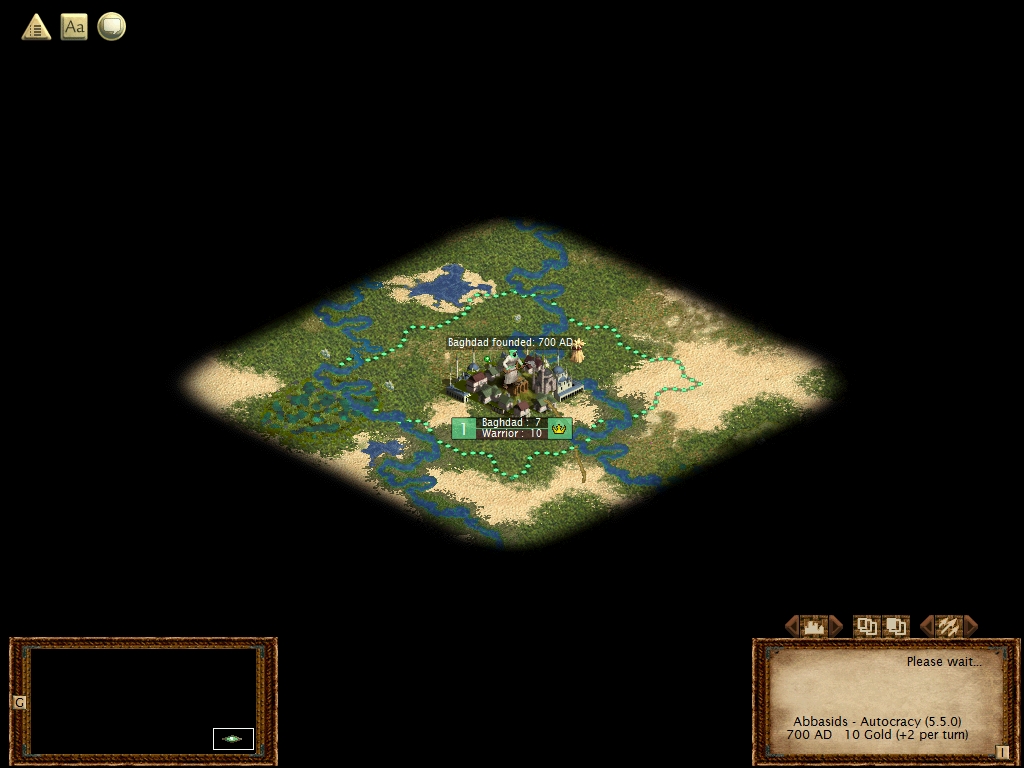
--------------------------
[I think I stole this next bit, I remember reading something similar in another Civ stroy. But I like it so much that I'll use this myself. Consider it a tribute.
 ]
]At this point the chronicle breaks off. It is unclear whether the missing pages are lost or whether Al-ulī found the years after the richly detailed description of the founding too irrelevant. From other fragmentary records we learn, however, that the new Abbasid capital grew quickly due to the extremely fertile land to its north-east and its strategic position and al-Mansur's and his descendants' followers set about irrigating, roading and mining the land.
So, that's it: a first little tease for you, the reader(s). I hope you will stay with me as we continue to learn about the beginnings and eventual rise of the Abbasid Caliphate, and further peruse the ancient manuscript of Al-ulī, the chronicler.





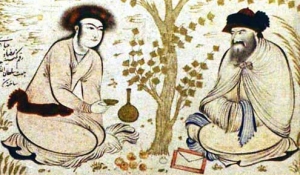

 and is entirely conceivable that a definite understanding of Abbasid history can be gleaned from the fabled manusript of Al-ulī. CFC members will be the first to read of the group's findings.
and is entirely conceivable that a definite understanding of Abbasid history can be gleaned from the fabled manusript of Al-ulī. CFC members will be the first to read of the group's findings. 




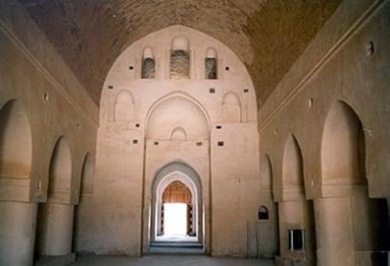


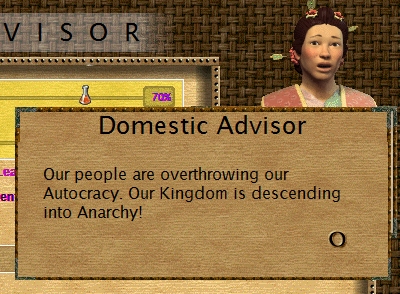


 Really weird to see the Fatimids settle 2 tiles away from Baghdad just like that, the bastards. Good luck with the conquest.
Really weird to see the Fatimids settle 2 tiles away from Baghdad just like that, the bastards. Good luck with the conquest.

